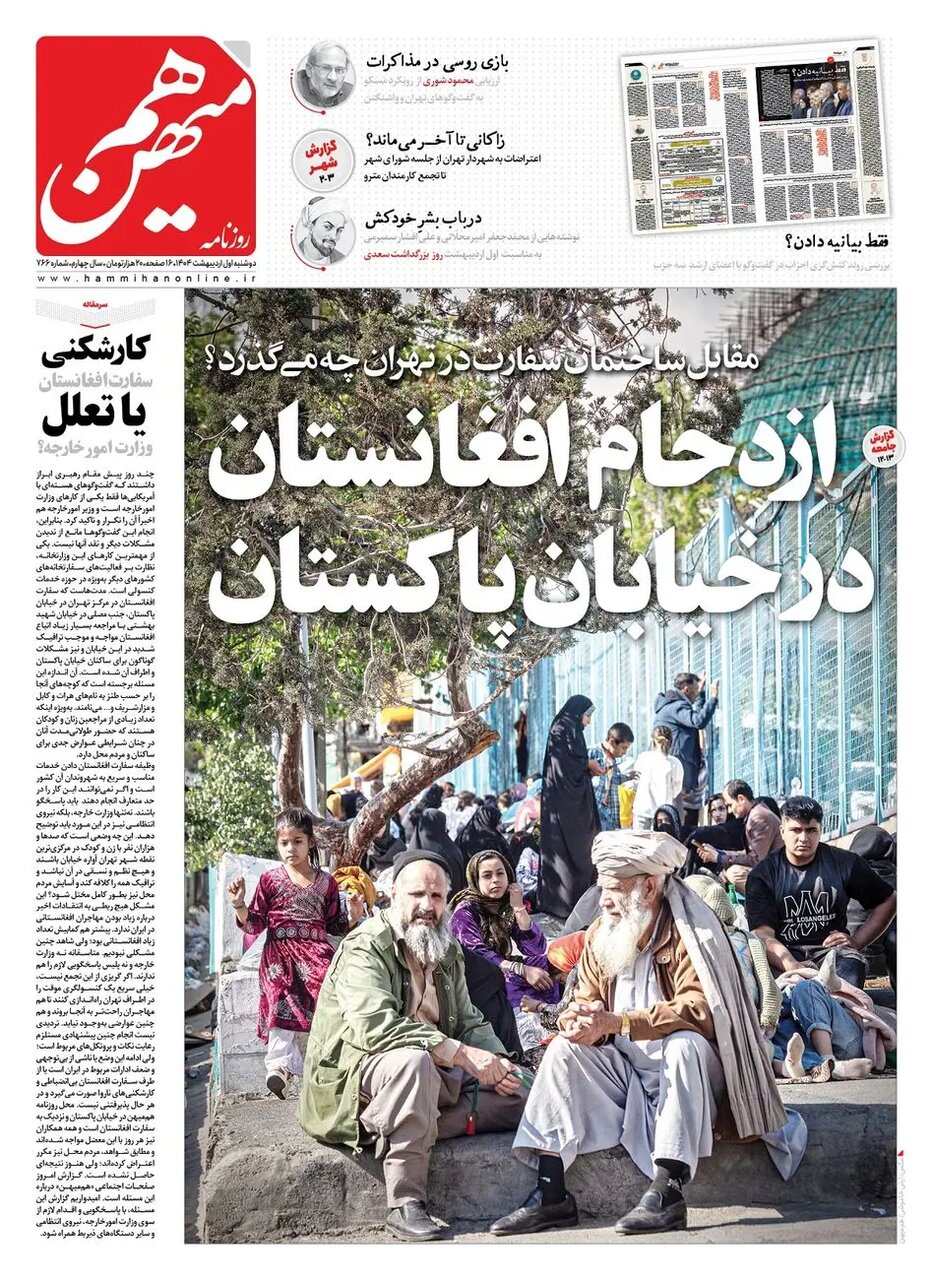A deal is possible

TEHRAN - In a note, Ham Mihan discussed the possibility of reaching an Iran-U.S. agreement by quoting former Iranian diplomat Hossein Mousavian who says: Given the current complex circumstances, these negotiations are an opportunity that could shape not only the future of Iran’s nuclear program but also the overall course of the Middle East.
Therefore, the success of these negotiations is of paramount importance and should not be missed. A deal can only be successful if it avoids war, addresses a comprehensive set of issues, not just nuclear, as the ultimate goal, and offers Iran a realistic compromise on its nuclear program. The Trump team can achieve a diplomatic success with Iran if it accepts five basic principles: diplomacy, not war, a realistic nuclear deal, reducing regional tensions, and economic convergence. None of these will be easy to achieve. But reaching an agreement is possible, and it could lead to other positive outcomes in the region. Resolving four decades of tensions between Iran and its Arab neighbors is equally vital. A regional security framework can be initiated through dialogue between the eight Persian Gulf states, hosted by the UN Secretary-General and supported by the permanent members of the Security Council. Only through diplomacy, trust-building, and mutual respect can a sustainable security architecture be achieved in the region.
Javan: Why are negotiations proceeding speedily?
Javan devoted its editorial to the speed of the negotiations and wrote: Some may think that Iran has been weakened in the region over the past year and conclude that Trump’s letter and the proposal to start negotiations were an opportunity to seize it to achieve everything that they had not accomplished before in a new agreement with Iran. However, the content of the negotiations shows that the U.S. is moving forward with minimal demands, and the speed of the negotiations is one reason for this. With the same argument, it can be claimed that America is desperate to weaken Iran, and the demand for negotiation and speeding it up should be understood along these lines. Also, the resolution of the Russia-Ukraine war and the nuclear issue with Iran will give America a free hand to focus on China to prevent it from becoming the second great power in the world. It can be concluded that the acceleration of negotiations by America, if continued until a result is achieved, is not a strategic matter but only a tactical way to overcome the current situation against Iran. But change is always attractive.
Arman-e-Emrooz: Israel is trying to disrupt the talks
In an analysis, Arman-e-Emrooz discussed the start of the looming technical talks between Iran and the U.S. in Oman and wrote: In about 48 hours, technical talks between Iran and the U.S. will begin at expert level to limit Iran's nuclear activities and lift sanctions. In the Rome talks, discussions were held and an understanding was reached on the general framework, agenda, and technical talks. Iran's proposals are clear, and from Iran's point of view, sanctions should be lifted, and this should lead to the economic benefit of the Iranian nation. Tel Aviv has been trying to influence the position of American officials since the start of indirect talks between Tehran and Washington on Iran's nuclear program, and in this regard, Israel has held secret meetings with Steve Witkoff but has not been able to convince him to change his position. Iran’s positive view of the second round of talks, the United States’ lack of attention to some details, and the planning for a third round of talks on Saturday (April 26), among other details indicate that the Israelis have not succeeded in their mission, although Israel will keep its hopes alive until a new, moderate agreement is signed.
Iran: Riyadh's policy shift will benefit national economy
In a commentary, the Iran newspaper dealt with the policy change by Saudi Arabia and other Persian Gulf Arab states toward the nuclear talks between Iran and the United States. It wrote: Ten years ago, when former U.S. President Barack Obama reached an agreement with Iran, Saudi Arabia was worried and unhappy. But now they hope the ongoing talks can strengthen “peace in the region and the world.” More importantly, Saudi Arabia is diversifying its economy; a program that aims to transform the country from an oil-dependent economy into a center for trade, technology, and tourism. Ten years ago, Persian Gulf Arab leaders felt ignored in the nuclear talks. This time, Iran is engaging regionally. What attracted attention after the first round of the talks was that the Iranian foreign minister contacted his counterparts, including the Bahraini chief diplomat. Iran seeks regional support, and the Persian Gulf states not only support the talks but also try to prevent any tension that might affect their economic and national security.
